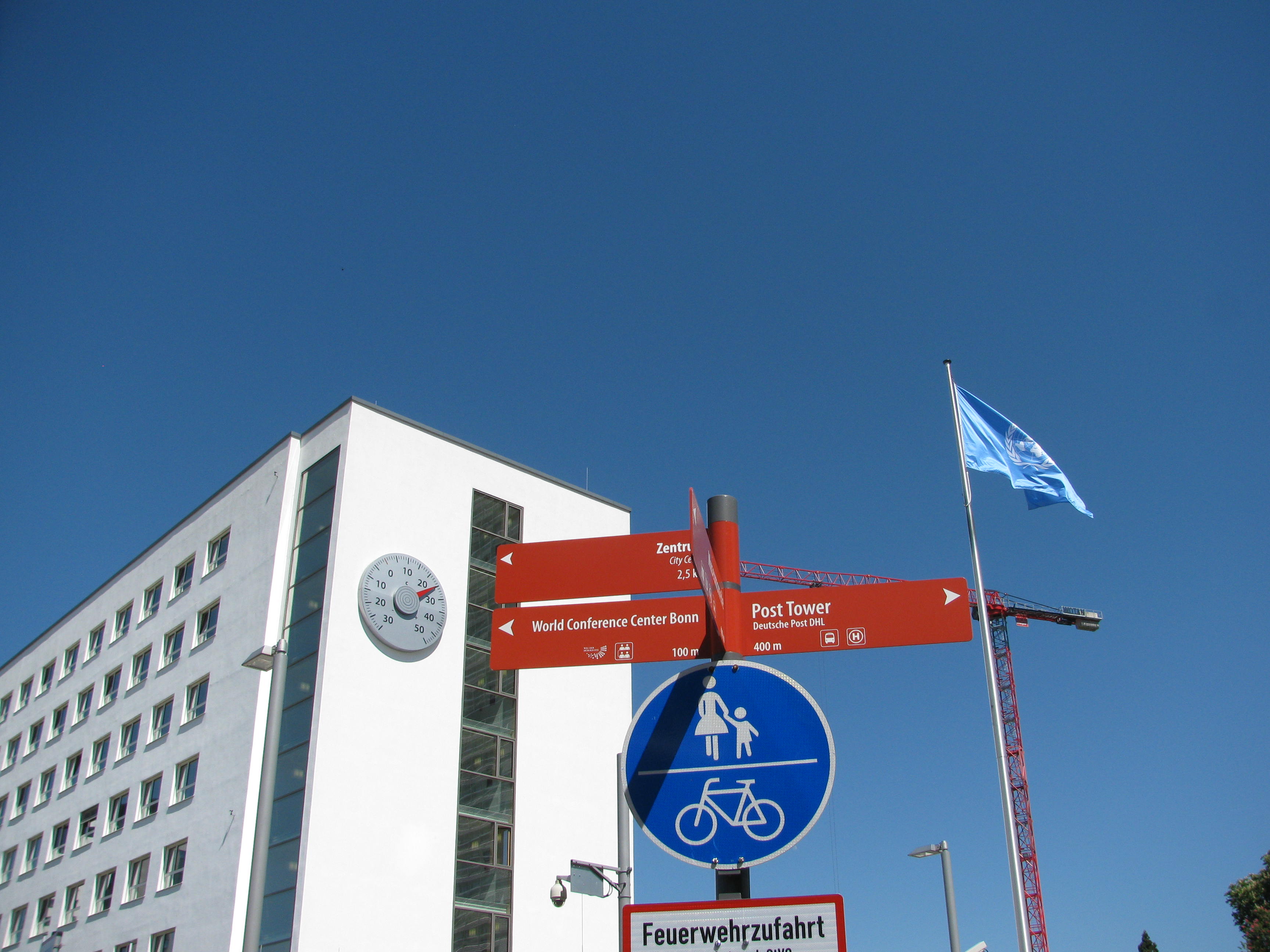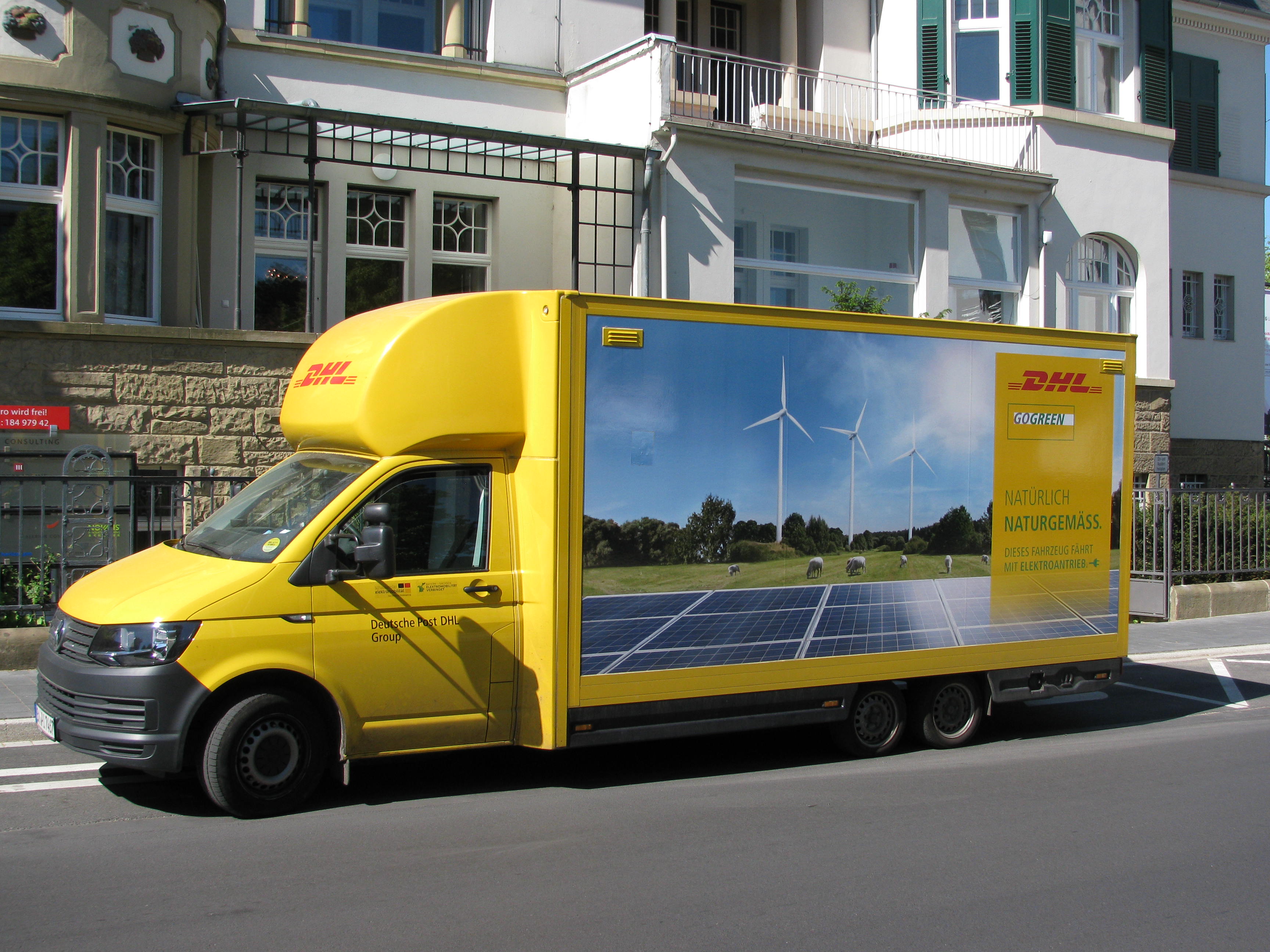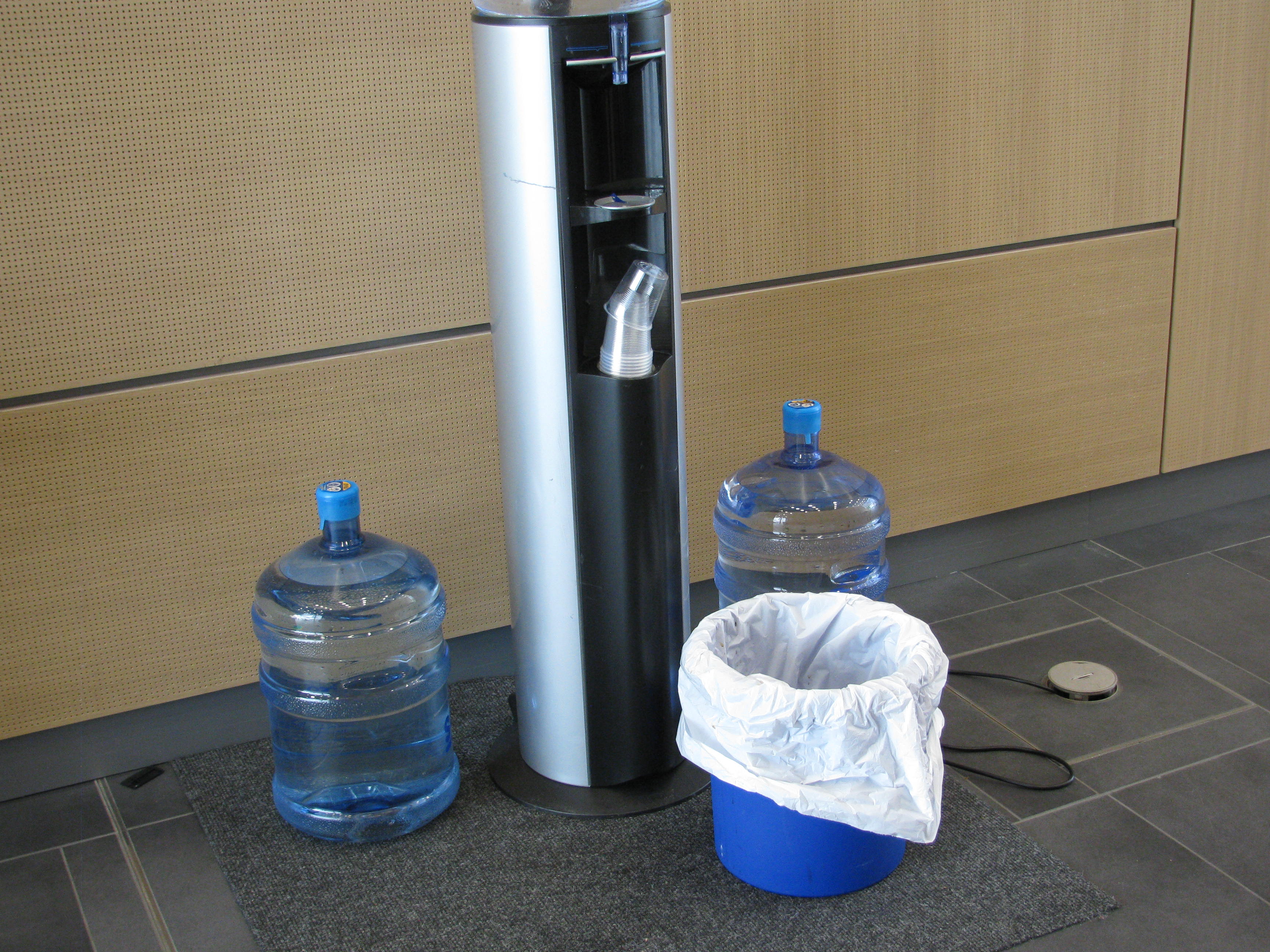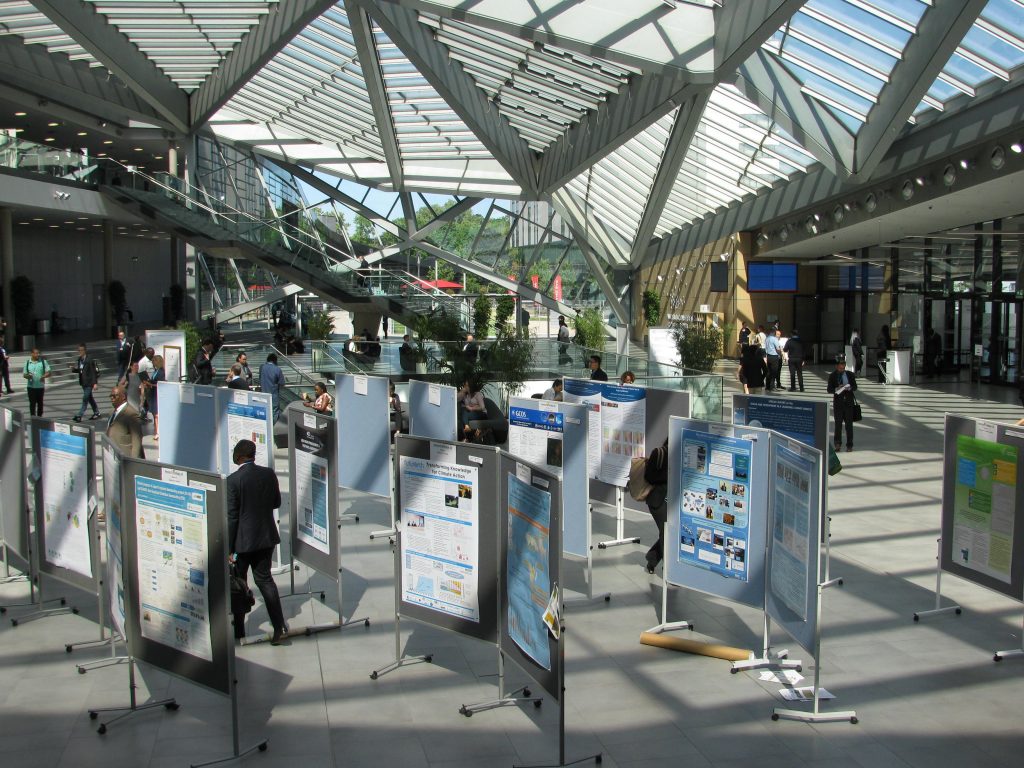Search Results for Tag: CAN
Arctic sea ice low as UN delegates talk climate in a sweltering Bonn.

Blue skies, temperature rising at UN climate headquarters in Bonn
It’s been a scorcher of a week here in Bonn. Delegates to the UNFCCC climate talks (one of the interim meetings to prepare the big COP24 which will take place in Katowice, Poland, in December) have been experiencing non-stop sunshine and temperatures up to 30 degrees Celsius. It feels like the height of summer here, although we are only at the beginning of May.
How appropriate as a backdrop to a meeting that is trying to work out the nitty gritty of actually fulfilling the Paris Agreement commitment to limiting global warming to 2 or preferably 1.5 degrees C warming.
“Currently we’re heading for 3 degrees C of warming rather than the 1.5 degrees C agreed in Paris, and the window of opportunity to reverse this is swiftly closing,” was the comment from Jens Mattias Clausen from Greenpeace Nordic.
Sea ice on the wane (again)
Coming back to work after a long break, a catch-up look at twitter, #Arctic drew my attention first to a tweet from @ArthurWyns telling me “next week it will be 20°C warmer than usual on the #Arctic!!!”
Then came one from @ketil_Isaksen, about one of my own favourite Arctic places:
“Unusually early, extensive and rapid snow melt on #Svalbard releasing extreme melt water discharges in the valleys. +6°C and strong breeze today in #Longyearbyen (78°N)”
In Arctic Today, Yereth Rosen has an article telling us this year’s Arctic sea ice melt season is “off to an unusually fast start”, and provides some worrying data from the NSIDC.

Melting ice off Svalbard (Pic I.Quaile)
Still working out the rules
Given all this, I can well understand why a lot of people involved in the talks in Bonn are feeling frustrated at the slow progress being made.
The delegates are charged with finalizing the rules for the actual implementation of the Paris Agreement. You can be forgiven if you thought things had already moved beyond that stage.
Yes, the wheels of international climate diplomacy move very slowly.
At a press briefing organized by the Climate Action Network (CAN), Li Shuo, a Senior Climate & Energy Policy Officer with Greenpeace stressed: “This is a mini Paris here. We really are trying to finalize all the detailed rules for the Paris Agreement. That’s a daunting task.”

Climate-friendly electric lorry in Bonn (assuming it’s not running on coal-powered electricity?) (I.Quaile)
The Polish dilemma
The next COP at the end of this year will be held in Katowice, the heartland of Poland’s coal industry. Wouldn’t it be fantastic if that turned out to be a turning point in the transition away from fossil fuels to renewable, climate-friendly forms of energy? The city itself says it wants to go green, as one of our correspondents reported in the latest edition of my radio show Living Planet. But, alas. There are absolutely no signs that the Polish government is planning to change its policy any time soon.
“We have seen worrying signs that the Polish presidency thinks that it will sufficient just to get some kind of rulebook,” said Alden Meyer, Director of strategy and policy for the Union of Concerned Scientists, also at the event organized by CAN.
He went on: “We don’t have to wait for the IPCC special report in October to know that what’s on the table and being implemented falls far short of what’s needed to reach the temperature goals countries agreed to in Paris.”

PLASTIC bottles, plastic cups for water? Yes, at the UN climate conference. (I.Quaile)
Coal and climate
I asked him how he saw Poland’s stance on all this at the moment. In spite of the government’s support for coal and reluctance to see to see the EU step up its goals, he stressed that “the role of the presidency is to put their domestic considerations aside and operate on behalf of the entire world community”.
Well, we can try to be optimistic.
“We retain some hope that Poland in its role as the presidency will be different from Poland in its role within the European Union and in its domestic energy policies”, said Meyer, they have to ensure that “the first review of the Paris Agreement, actually triggers much stronger climate commitments”.
Li Shuo noted that Poland was rather late in “shaping up their team” for the climate conference.
“There’s really no clarity from the incoming Polish presidency on how they plan to deal with the political process at Katowice. So we need to hear more from Poland”, he told me at our meeting.
The state of play
When I hear after a week and a half of a two-week working meeting that some progress has been made on technical issues of implementing the rules of the climate agreement, it does not make me feel confident that the international community is going to meet the emissions targets on time. “Other discussions are really stuck because of political differences”, said Li Shuo – mostly relating to the INDCs, or “nationally determined contributions”.
Concerned scientists’ representative Meyer reiterated the urgent need for progress on adaptation, with a lot of climate impacts already being felt: “No matter how successful we are on meeting the Paris temperature limitation goals, those impacts are going to continue to mount over the next several decades because of inertia and momentum in the climate system”.

A maze of science! Good to see it at the Bonn gathering. (i.Quaile)
What happens in the Arctic…
That would also apply to the Arctic region, where temperature rise is not only completely altering things for people and nature up there – it is also changing weather patterns and ocean circulation, with severe implications for the whole planet.
“What is missing is leadership and guidance, especially coming from the presidency”, said Li Shuo. And the spectre of another President is also hovering over the Bonn talks.
However, the Polish government has been preparing for the end-of-year climate extravaganza in other ways. It has passed a bill specifically for the UN summit which bans all “spontaneous gatherings” in the southern coal-mining city of Katowice between November 26 and December 16, which covers the entire period of the conference. It also submits registered participants to government surveillance and allows authorities and police to obtain, collect and use personal data of attendees without their consent or judicial oversight.
We’re still trying to get an official UNFCCC statement on that one. Good ground for getting the whole world on board to halt climate change?
















Feedback